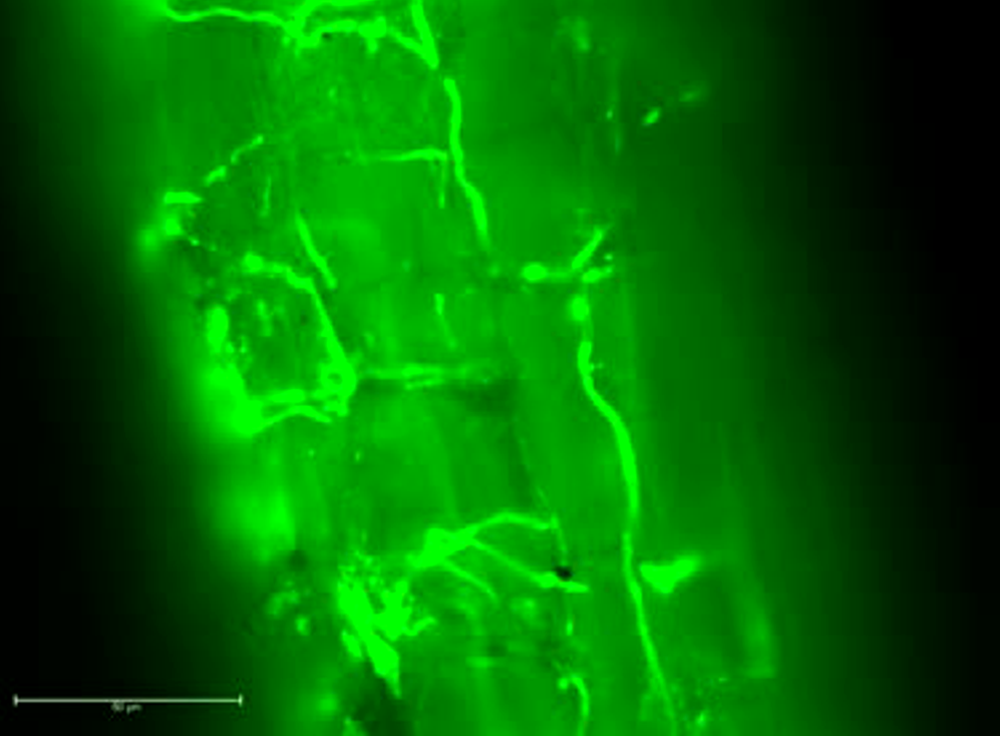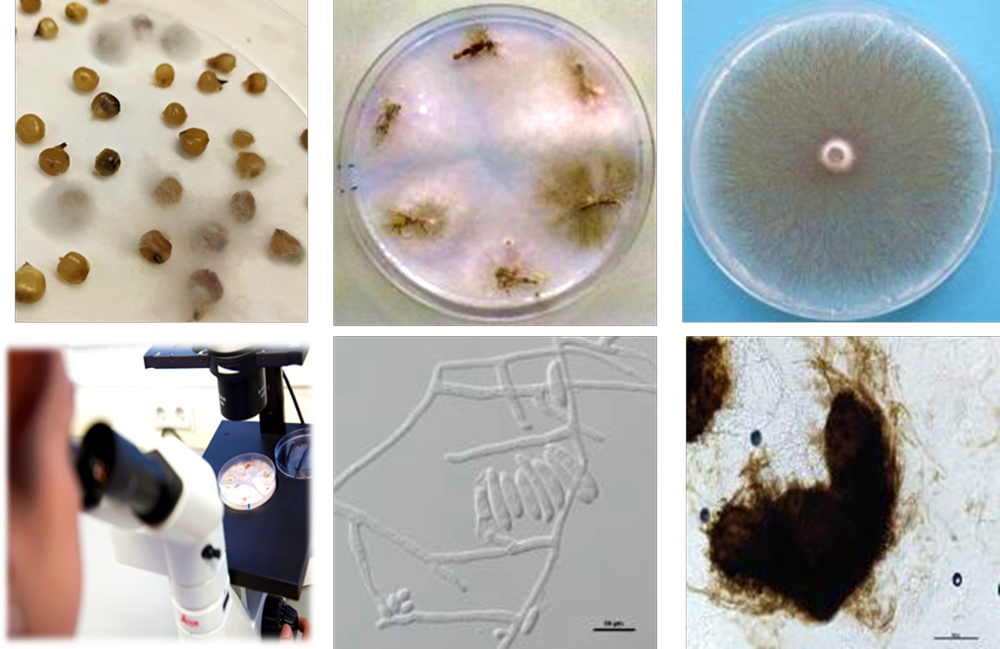B1: Mikrobiologie
Das Pflanzenmikrobiom spielt eine wichtige Rolle für die Gesundheit, Entwicklung und den Ertrag von Pflanzen. Vor allem wurzelassoziierte Bakterien (Rhizosphären- und Endobakterien der Wurzeln) und Arbuskuläre Mykorrhizapilze (AMF) haben eine zentrale Rolle bei der Nährstoffaufnahme und dem Schutz der Pflanzen. Unter Trockenstress nimmt die Bedeutung dieser positiven Eigenschaften der wurzelassoziierten Mikrobiota nochmals deutlich zu. Die Krankheitsresistenz von Pflanzen wird neben der genetischen Disposition hauptsächlich durch das mit den Pflanzen assoziierte und das Bodenmikrobiom bedingt. Hierbei ist grundsätzlich eine positive Korrelation zwischen mikrobieller Vielfalt/AMF-Abundanz und der Wurzelgesundheit zu beobachten.
Das Mikrobiom in und auf den Wurzeln wird durch die Wurzelexsudate der Pflanzen in seiner Zusammensetzung gesteuert und gefördert. Vielfältige Pflanzenbestände produzieren vielfältige Exsudate und damit vielfältige Mikrobiome. In gemischten Beständen wird eine erhöhte bakterielle und AMF-Abundanz und Diversität im Boden erwartet. Inwieweit sich dies positiv auf die Pflanzengesundheit auswirkt, ist noch wenig untersucht. Neben der Diversität bakterieller Gemeinschaften ist hier v.a. wichtig, die Aktivität spezifischer mikrobieller Gruppen zu verstehen, die z.B. dazu beitragen, dass Pflanzen effizient mit Nährstoffen versorgt werden. Die Rolle dieser Gemeinschaften ist besonders wichtig im Falle von Fusarium-Arten, die meist opportunistische Pathogene sind, die sich asymptomatisch in Pflanzen befinden und dann Schäden verursachen, wenn die Pflanzen gestresst sind. Fusarien sind mit unterschiedlichen ökologischen Nischen assoziiert. Während die mit Weizenwurzeln und -samen assoziierten Fusarienarten gut charakterisiert sind, fehlt es an Informationen über mit Arznei- und Gewürzpflanzen assoziierte Fusarienarten.
Arbeitspakete und Beteiligte
AP 1: Mikro- und molekularbiologische Analyse des Pflanzenmikrobioms
AP 2: Mikro- und molekularbiologische Analyse der Pathobiome mit Schwerpunkt auf Fusarium-Pathogenen in Wurzeln und Samen


